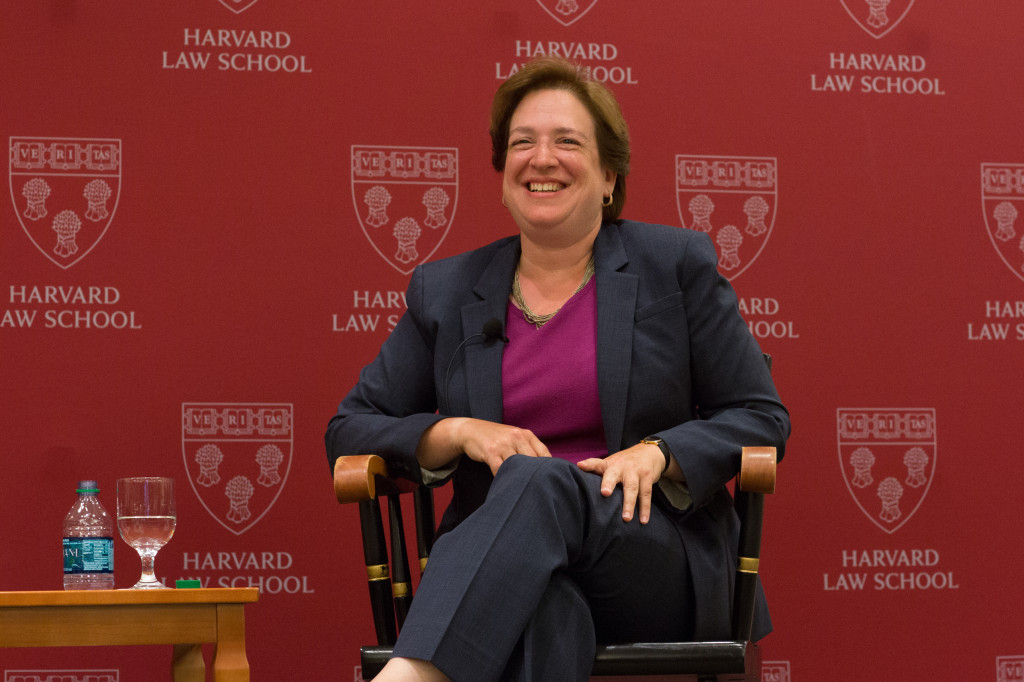Dean Kagan rejects Professor Lessig’s galaxy-brained scheme to make Electoral College even worse

Larry Lessig’s bizarre argument that the Constitution forbids states from sanctioning faithless electors, which somehow got two votes from judges on a 10th Circuit panel who were apparently in the midst of a major bender or something, was today properly rejected 8-0 by the Supreme Court. Entertainingly, Lessig’s former boss was assigned the opinion, which dismembered the argument and declined to even send the widow a corsage. To summarize:
- The explicit text of Article II authorizes state legislatures to “direct” the selection of members of the Electoral College, and nothing explicit or implicit in the text of the Constitution suggests that states cannot use this power to order electors to vote for the candidate chosen by the electorates of their respective states.
- The Supreme Court has held since 1952 that states have the authority to direct electors to vote for the candidate chosen by their state electorates. The 10CA opinion was therefore that legislatures might have the power to order electors to vote faithfully, but they don’t have the power to sanction those that don’t. If you think that doesn’t make any sense, you’re right!
- The “fundamental right” of electors to vote for whoever they choose cited by 10CA doesn’t actually exist in either constitutional text or doctrine. There is an extensive tradition of states restricting the discretion of electors.
- The best you can do to counter the overwhelming weight of the textural, structural and doctrinal support for the policies enacted by Washington and Colorado is to make an originalist argument centered on the fact that the framers didn’t like the idea of political parties and would have wanted electors to be independent. Even on its face, this is the kind of vulgar originalism — based on the subjective expectations of the framers rather than what they actually enacted — that even sophisticated originalists generally reject. But the bigger problem, as Kagan observes, is that the original Electoral College was permanently altered by the Twelfth Amendment, which was framed and enacted by persons who understood the inevitability of political parties and that nonpartisan mechanisms of the original Electoral College (most notably making the Electoral College runner-up the Vice President) were unworkable. Since the Twelfth Amendment supersedes the 1.0 version of the kludge, the vulgar originalist argument fails even on its own terms.
- The pragmatic arguments for Electoral College Chaos theory are no better than the legal ones. Lessig is, correctly, an opponent of the Electoral College and a proponent of having the president chosen by popular vote, but his argument for this particular remedy can be summarized roughly as “anything that damages the Electoral College is good, and this is something.” As with most heighten-the-contradictions arguments, though, this is massively unconvincing. Especially in a context in which Republicans have benefitted from Electoral College malfunctions twice in 16 years (and in a year in which they seem to have already lost hope of winning the popular vote), you’re not going to get the consensus necessary to eliminate the Electoral College because of an abstract change in the law. The only way forbidding states from punishing faithless electors could lead to the effective end of the Electoral College would be if both parties got screwed by faithless electors in close succession. This is both unlikely to happen and a price not worth paying, especially since there’s no guarantee in a real world that repeated malfunctions will magically lead to a rational compromise solution rather than further chaos.
- Nor is preventing states from sanctioning faithless electors necessary for the National Popular Vote Interstate Compact to be implemented. Nothing in the decision prevents states from exempting electors who depart from state electorates to vote according to the national popular vote from sanctions. And, of course, as a practical matter to work the NPVIC would order electors to vote in accordance with the national popular vote, something Lessig’s theory would prevent, allowing rogue electors in individual states to undermine the compact.
In short, this is an argument that earned exactly as many Supreme Court votes as it merited.


